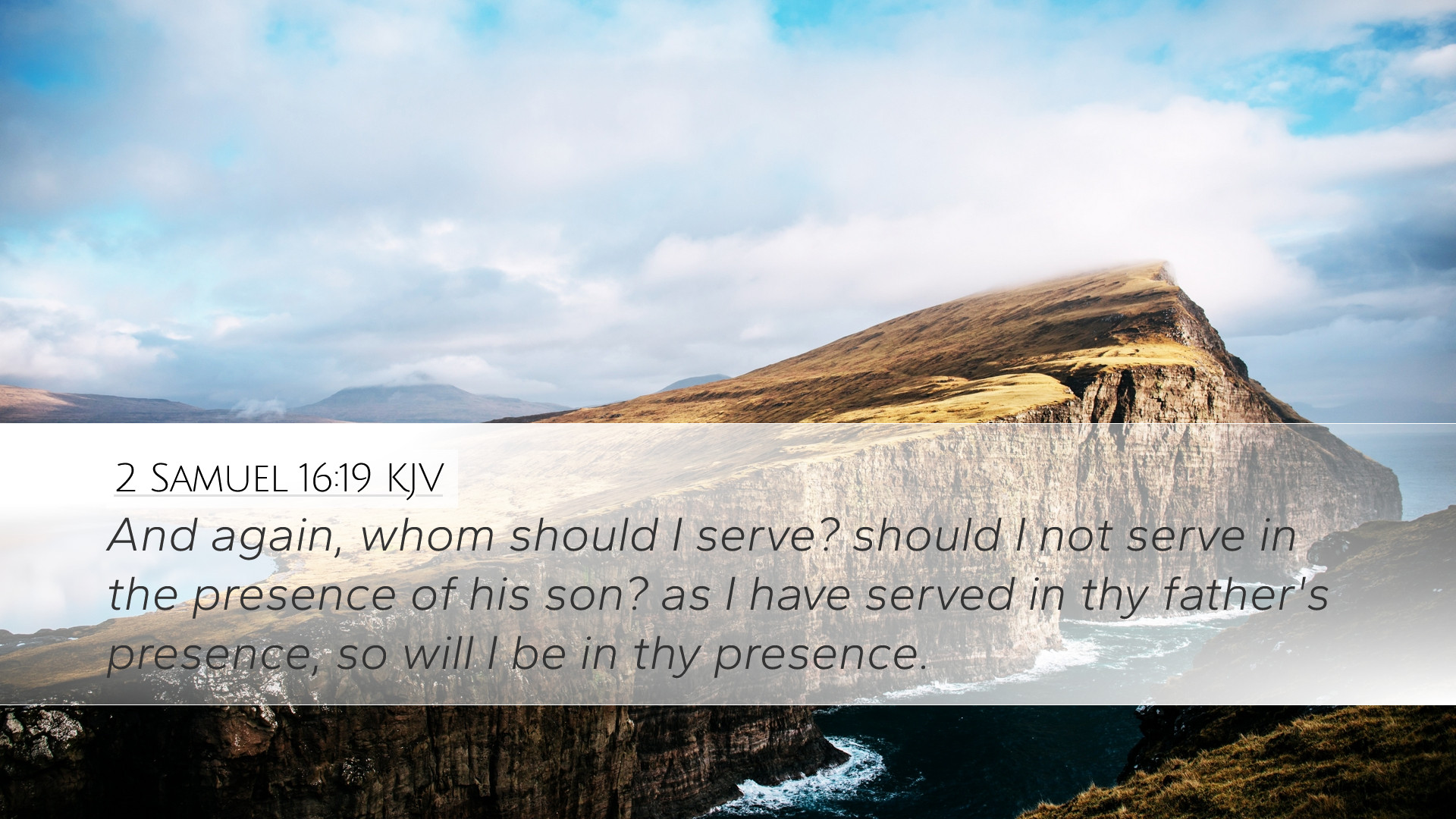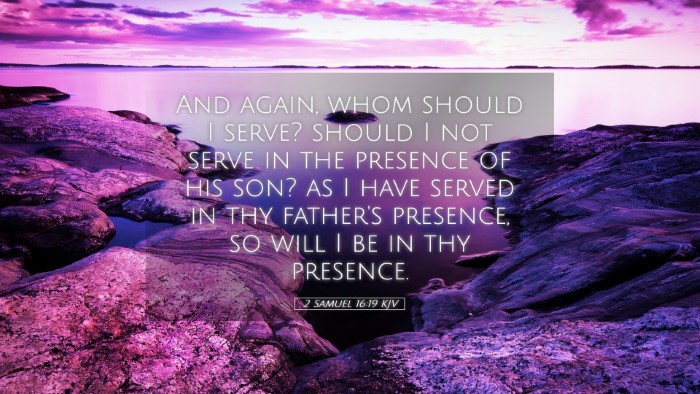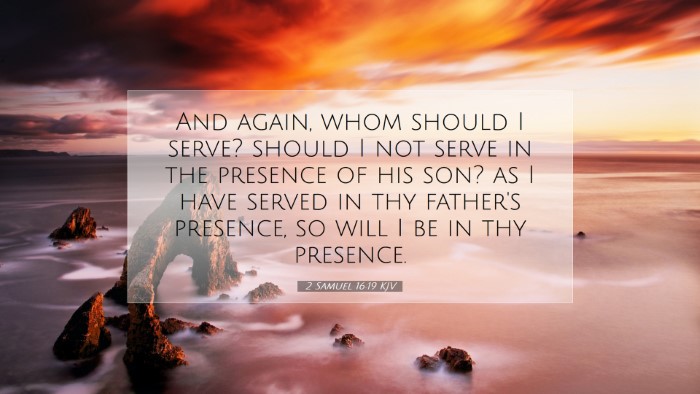Commentary on 2 Samuel 16:19
Verse Reference: 2 Samuel 16:19 - "And yet again, whom should I serve? Should I not serve in the presence of his son? As I have served in your father’s presence, so I will be in your presence."
Contextual Background
The context of 2 Samuel 16:19 is significant as it occurs during Absalom's rebellion against his father David. This tumultuous period highlights themes of loyalty, betrayal, and the complex dynamics of political power within Israel. Absalom, having usurped his father’s throne, seeks to consolidate his reign and leverage those who were previously loyal to David.
Verse Analysis and Commentary
Matthew Henry's Commentary:
Matthew Henry emphasizes the verse's exploration of loyalty, particularly in the context of Ahithophel's intentions. As a counselor to both David and Absalom, Ahithophel represents a pivotal figure whose allegiance can tip the scales of power. Henry reflects on the notion that true service is rooted in faithfulness, which is tested in times of turmoil.
Albert Barnes' Insights:
Barnes elaborates on the phrase "whom should I serve?" suggesting that it reflects a deep moral quandary faced by Ahithophel. The loyalty he pledges to Absalom is contentious, as it requires him to abandon the service of David, who had previously been his king. Barnes highlights the complexities of human alliances, noting that the verse spotlights the varying shades of loyalty that exist in political intrigue.
Adam Clarke's Commentary:
Clarke focuses on the implications of serving in the "presence of his son" as opposed to the father. He notes that service rendered in the context of familial loyalty poses a profound moral dilemma for Ahithophel. Clarke points out the societal expectations that dictate where one’s allegiance should lie, revealing how personal relationships can complicate matters of loyalty to authority.
Theological Reflections
- Loyalty and Service: The commentary invites readers to reflect on the nature of loyalty. Are we bound to serve those in authority solely based on their position, or do personal relationships shape our allegiances? The narrative calls for a deeper examination of the motivations that guide our commitments.
- The Conflict of Interests: The backdrop of political strife illustrates the complexities of human nature. Individuals often face situations where personal and public loyalties collide, prompting theological discussions on fidelity, integrity, and the potential for moral ambiguity in our allegiances.
- Divine Sovereignty: The story underscores God’s overarching plan even amid rebellion and strife. Ahithophel’s essential role demonstrates how human actions intertwine with divine providence, suggesting that God can use even treachery for His purposes.
Application for Ministry
For pastors and theologians, this verse serves as a rich source for discussing the dynamics of leadership and loyalty within congregations. It challenges leaders to cultivate environments where loyalty flourishes and encourages congregants to examine their personal allegiances. Strengthening the bond between church leadership and members can mitigate the conflicts seen in the biblical narrative.
Additionally, educators and students of theology can utilize this verse as a case study in the ethical implications of service and loyalty within the church context. Discussions can be directed toward the impacts of betrayal and faithfulness in both biblical accounts and modern-day ecclesiastical structures.
Conclusion
2 Samuel 16:19 serves as a poignant reminder of the complexities inherent in human relationships, particularly as they pertain to authority and loyalty. Through the insights drawn from Henry, Barnes, and Clarke, we are encouraged to reflect on our own allegiances and the motivations behind our service. As we navigate the intricate weave of faith, loyalty, and service, may we ever seek to align our hearts with God’s principles and purposes.


